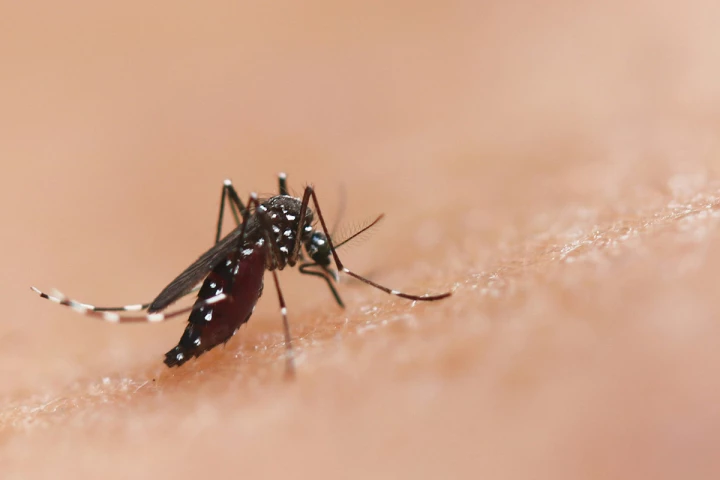Mosquito
-
An antiviral targeting the dengue virus was quietly abandoned by industry, but it's now suddenly back in the spotlight. A new study suggests it didn’t just slow the dengue virus, it blocked viral replication and reduced infection rates at high doses.
-
In order to 3D-print really intricate items, you need a really fine print nozzle. Scientists have discovered that instead of going to the time and trouble of building one, you can simply repurpose a mosquito's existing blood-sucking proboscis.
-
We don't fully understand why some people are more attractive to mosquitoes – it's a complicated web of physiological and bacterial factors, geography and species. But a new study suggests that some insects like to home in on the life of the party.
-
A novel way to prevent the spread of malaria by directly targeting the proteins that enable the infectious parasite to reproduce could soon be realized, thanks to scientists at WEHI in Australia.
-
While we may still not have flying cars, robot butlers or food replicators in our possession, you can now order something else you may have long dreamt of. It's called the Photon Matrix, and it uses lasers to track and kill airborne mosquitoes.
-
Mosquitoes have long been among humanity’s most formidable adversaries, causing more deaths than any other animal. With traditional control methods facing mounting resistance, researchers are seeking innovative ways to combat mosquito-borne disease.
-
Kammok offers what might just be the quickest, most convenient vehicle-mounted awning on the market. Now, it's expanding the design with a fast-pitching no-see-um mesh bug room that installs like a bedsheet.
-
Nobody likes hearing a mosquito somewhere in their bedroom, without being able to see where it is. Well, the Bzigo Iris tracks and highlights mozzies, so you can swat them. It's now 50% cheaper, and doesn't require a Wi-Fi connection.
-
The itch from bug bites, rashes, and other skin conditions can sometimes be so overpowering that it feels impossible to avoid scratching them. But new research explains why you might want to hold off as long as you can.
-
Mosquitoes looking to mate in Australia are about to have the worst sex of their lives – thanks to genetic modifications turning their semen toxic. That could kill females swiftly, and greatly reduce their ability to spread deadly diseases.
-
Mosquitoes do a superb job of spreading diseases like malaria – now researchers have shown it's possible to hijack these pests and distribute vaccines via mosquito bite. In human trials, these mozzie-borne vaccines proved around 90% effective.
-
Genetic studies have revealed that when male mosquitoes lose their hearing, they also lose their sex lives. The surprising discovery could lead to new ways to reduce mosquito populations and the diseases they spread.
Load More










